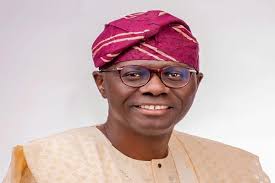Governor Babajide Sanwo-Olu of Lagos State, former Minister of Works, Power and Housing Babatunde Fashola, SAN, and other national stakeholders have emphasised the need for a change in the mindset of both leaders and citizens for Nigeria to achieve sustainable development.
The call was made during the Lagos edition of the Nigerian Economic Summit Group’s (NESG) National Dialogue Series, organised under the Nigerian Hamilton Project with support from the Gates Foundation. The series draws inspiration from Professor Osita Ogbu’s book, Development as Attitude: How National Progress is Shaped by Leadership Philosophy and Citizens’ Orientation. The book examines how leadership thinking, citizen participation, and collective action influence national development, using Nigeria and selected African countries as case studies to refine policies and strategies.
Speaking on the Hamilton Project, NESG Chief Executive Officer, Tayo Aduloju, explained that the initiative was born out of a realisation that economic policy alone is not enough to drive progress. He said a shift in mindset and national paradigms was necessary for Nigeria to move forward. According to him, “Minds have to change. Paradigms have to shift. At scale, at critical mass, we must achieve a developmental model that matches our realities and overcomes political, social, and economic constraints, as well as post-colonial mindsets.” He added that the project draws lessons from Alexander Hamilton’s era in the United States, where citizens and experts—not only government—led debates that shaped democracy.
Governor Sanwo-Olu, represented by Lagos State Commissioner for Economic Planning, Ope George, agreed that both leadership philosophy and the mindset of citizens are crucial to national progress. He noted that leadership requires vision, consistency, and a relentless focus on the welfare of the people. He said Lagos is working towards building a city that works for everyone through infrastructure development, technology-driven governance, and quality education. However, he stressed that leadership alone is not enough, and that the attitudes and actions of citizens complete the picture. “Without a shared culture of care and responsibility, even the best public project wouldn’t last,” he said, adding that true development happens when leaders act with integrity and citizens adopt a positive, developmental attitude.
Former Lagos State Governor Babatunde Fashola highlighted the absence of a coherent national ideology as a major gap. He questioned what “Nigerianness” truly means and suggested that entrenching the rule of law could serve as a unifying national creed. He said, “If it could just be said of us, ‘That country is a country of laws.’ They are law-abiding people—it will perhaps make us richer than if we only pursued prosperity without structure.”
Professor Osita Ogbu, Co-Chair of the NESG National Economic Advisory Council and author of the book, said that citizenship responsibility comes from having a stake in the nation. He emphasised that a good government must be committed to the happiness of its people and have the knowledge—or the right team—to achieve that goal. He also lamented Nigeria’s lack of national shame in the face of poor results, using the country’s failure to win medals at the Olympics as an example. “Shame is revolution itself,” he said, calling for such moments to inspire rebuilding efforts.
In his contribution, Abubakar Suleiman, Managing Director/Chief Executive Officer of Sterling Bank, stressed the need to build strong fundamentals for national growth. He explained that leapfrogging in development does not mean skipping essential processes such as building strong science and technology foundations, research capacity, and manufacturing capabilities. Using Aba’s manufacturing sector as an example, he said it has been unable to grow significantly because the quality and scale of its products cannot compete with global standards backed by heavy research investment.
The event underscored that for Nigeria to make lasting progress, leaders must embrace a vision-driven, accountable style of governance, while citizens must adopt attitudes that support development. Participants agreed that a shared national ideology, respect for the rule of law, strong fundamentals in science and industry, and an engaged citizenry are vital to moving the country forward.
